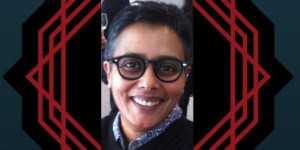
754 Schermerhorn Ext.
The Institute for Research on Women, Gender, and Sexuality and the Heyman Center for the Humanities
Over the past decade, a sea change has occurred in discourses of sexuality throughout the Global South. In this presentation, Professor Shah reviews this set of changes in India, by focusing on sex worker, transgender and queer spatial politics as they have been unfolding in Indian cities, in media, and in the law. These transformations may ostensibly be read through the rubric of modernity, in that, if sex workers have been subject to ‘temporal distancing’ through erasure, then gay and transgender rights are increasingly framed as signs of the times. The rising discursive legibility of gay, lesbian and transgender subjects, in particular, has been acute in the wake of a stalled national campaign to decriminalize “unnatural sexual practices.” Here, Professor Shah suggests that, while the familiar frame of ‘modernity and its Other’ is useful for understanding some of the new juridical and other discursive regimes of sexuality being produced in South Asia, these rubrics must, in their turn, be read through the twinned lenses of migration and temporality.
Professor Shah’s argument takes up Benjamin’s assertion in his essay on translation, that “In the final analysis, the range of life must be determined by history rather than by nature, least of all by such tenuous factors as sensation and soul.” She contends that, by considering the question of modernity alone, the discourse of sexuality has risked being read as biologized constraint. Countermanding this propensity requires concomitant attention to a materialist history of sexuality, and specifically to how, where and why discourses of sexuality have moved, and to what effect.
About the Speaker
Dr. Svati P. Shah is an Associate Professor of Women’s, Gender and Sexuality studies at the University of Massachusetts, Amherst and currently a Zolberg Institute Visiting Scholar. Previously, she was awarded a postdoctoral fellowship in sexuality studies at Duke University, and had served as visiting assistant professor at Wellesley College and New York University. She has spoken about her work extensively in the U.S., India, Europe, and South Africa.
Dr. Shah earned a PhD in 2006 from Columbia University’s joint doctoral program in anthropology and public health; she also holds an MPH from Emory University. Dr. Shah has taught sexuality studies and feminist studies in her courses, and in workshops and short-term courses taught internationally. She has published work on a range of topics that explore the intersections of urbanization, sexuality, migration and political economy. Her research has examined these intersections ethnographically, through studies of sexual commerce and LGBTQ politics in India. Dr. Shah also works with a number of charitable foundations and community based organizations, both in the U.S. and in India. Her ethnographic monograph entitled Street Corner Secrets: Sex, Work and Migration in the City of Mumbai was published by Duke University Press in 2014.







